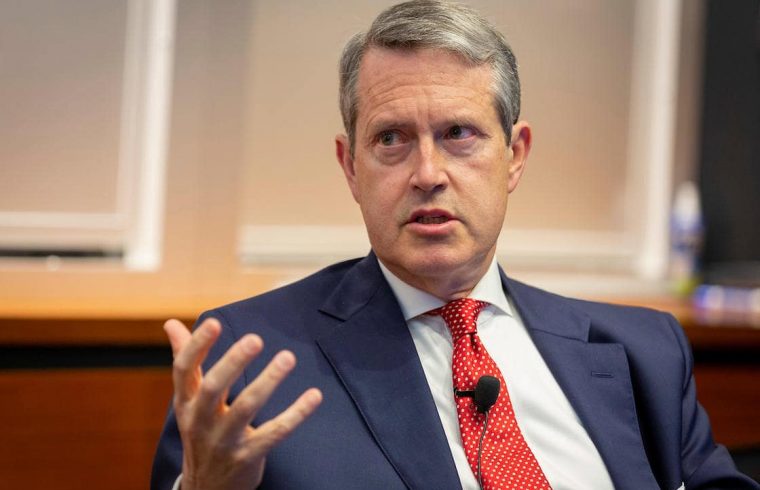
Coronavirus has put a unique shock onto financial markets, but they were on solid footing to manage the shock.
Randy Quarles is the Vice-Chair for Supervision at the Federal Reserve.
He was one of four witnesses called to testify remotely at a hearing of the Senate Banking Committee entitled, “Oversight of Financial Regulators.”
In his opening remarks, Quarles described the financial shock of coronavirus.
“Measures adopted to contain the pandemic triggered a deep, abrupt, and global financial shock. Uncertainty cascaded across the financial system. Savers and investors took part in a flight to safety, seeking the stability of cash over the volatility of the market. The storm that followed visited asset classes from commercial paper to treasuries….More than a decade ago, US banking organizations faced a different crisis, in which their structural weaknesses compounded the ongoing stress. Twelve years of work, by Congress, by the financial institutions, by the regulatory agencies went toward ensuring that this dynamic would not repeat.
“We raised the quantity and the quality of bank capital and liquidity, improved risk management, and bolstered operational resiliency. As a result, financial institutions entered this new crisis in a position of strength.”
“We reminded firms to work constructively with customers during this extraordinary time; we shifted temporarily from on-site examinations to off-site monitoring. We’ve made targeted and temporary changes to capital, reserve, documentation, and compliance requirements so institutions could better meet customer needs.”
Quarles also drew comparisons and contrasts between the current financial crisis and the one in 2008.
“There are many differences between this crisis and the one a decade ago. The most fundamental is the origin of the stress. 2008 marked the peak of the financial boom. the uncertainty that fueled it was born in the financial system, and policies aimed at the financial system could address it directly.” He said. “Today’s uncertainty is different. Its roots run deep in the marrow of the real economy, anchored in urgent questions with no ready answers.”
Quarles also gave some advice to financial institutions.
“Firms must continue to work constructively with borrowers, offering them flexibility to weather a hardship they could not expect and did not create. Firms must still manage the challenges of operating during this time, and ultimately the strength of the US financial sector will reflect and depend on the strength of the US economy, and that in turn, will depend on the calibration and effectiveness of our public health response.”
Quarles noted starkly that the Federal Reserve could do more if needed.
“The tools we have are ones no country should ever hope to need. The hour of their use is one no country should ever hope to face. More may be required of us before the current crisis ends. We can only pledge to do what the moment demands.” Quarles said.
Quarles will testify in front of the House Financial Services Committee later in the week in a roundtable discussion format; that roundtable will also be done remotely.









